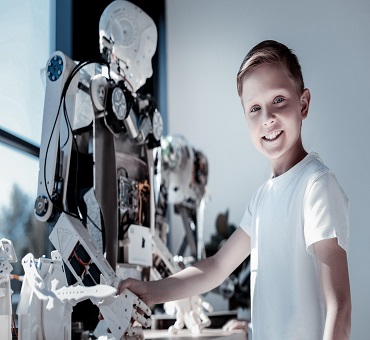Most people in countries where modern technology is widely used will be interacting with Artificial Intelligence (AI) through its many practical applications in computers that have visual capabilities, that can learn, solve problems, make plans, and understand and produce natural language, both spoken and written. These AI applications are used in areas such as medical diagnosis, language translation, face recognition, autonomous vehicle design and robotics.
AI is also already being applied to learning settings. For example, Alelo has been developing culture and language learning products since 2005 and specialises in experiential digital learning driven by virtual role play simulations powered by AI. Carnegie Learning produce the software that can support students with their STEM and Spanish studies. In order to provide individually tailored support for each learner the software must continually assess each student’s progress. The assessment process is underpinned by an AI-enabled computer model of the mental processes that produce successful and near-successful student performance.
These examples merely scratch the surface of what is possible with AI. In this presentation, I will explore how AI is relevant to education. I will discuss what AI can contribute to teaching and learning to help students and educators progress their understanding and knowledge more effectively. I will argue that in order to ensure that AI technologies for use in education and training embody judicious analysis and learn in a Learning Sciences informed manner, we must develop inter-stakeholder partnerships modelled on those that are operationalised through the EDUCATE EdTech programme in London. These inter-stakeholder partnerships are essential for AI developers to better understand teaching and learning, and for educators and trainers to better understand AI. They are also key to the development of better AI for education and training.














